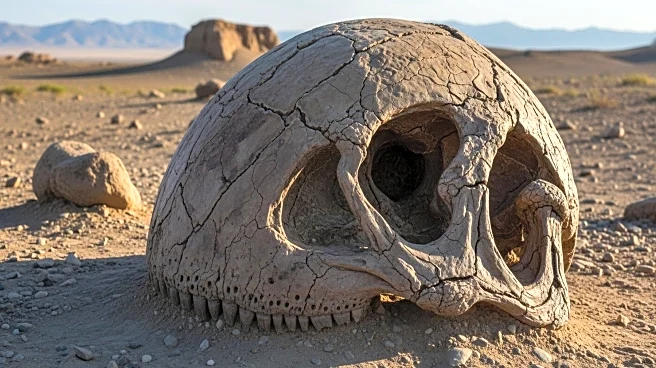What is the story about?
What's Happening?
Paleontologists have unearthed the fossilized remains of a dome-headed dinosaur in Mongolia, dating back over 100 million years. This discovery provides significant insights into the early evolution of the species' distinctive skulls. The fossil, found in the Gobi Desert, is believed to belong to a previously unknown species of pachycephalosaur, a group of dinosaurs known for their thick, bony skulls. The find is notable for its age, as it predates other known dome-headed dinosaurs by several million years, suggesting that the evolution of these unique skull structures began earlier than previously thought.
Why It's Important?
The discovery of this ancient dinosaur fossil is crucial for understanding the evolutionary history of pachycephalosaurs. By pushing back the timeline of when these dinosaurs developed their distinctive skulls, scientists can gain a better understanding of the environmental and biological factors that influenced their evolution. This find also highlights the Gobi Desert as a rich source of paleontological discoveries, which could lead to further significant finds in the future. The research contributes to the broader field of paleontology by providing new data that can refine existing theories about dinosaur evolution and adaptation.















